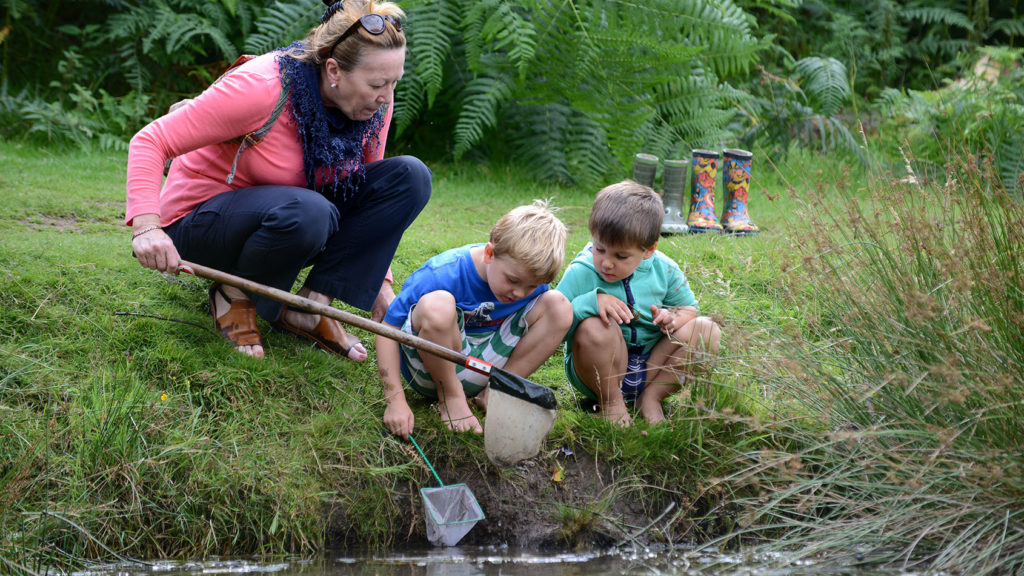Celebrating Our New Lead Schools for Music Education in Cheshire West and Wirral
On Thursday, 26th June, Edsential proudly welcomed six schools from...30 Jun 2025

The research evidence on outdoor learning shows that it has academic and wellbeing benefits
As the summer sets in, you may be thinking about taking lessons outside.
But such moves can be tricky to justify; is it really going to benefit learning or will it just become a distraction?
It’s often intuitively believed that nature is good for children, and that being away from the restrictions of the classroom environment enables them to learn more effectively.
Quick read: Why are we so reluctant to take learning into the outdoors?
Quick listen: How to spot education education myths and read research
Want to know more? Is mindfulness the answer to teachers’ wellbeing woes?
But what is the evidence telling us? Are such claims based on any research findings?
There is certainly a benefit to spending time outside.
In a 2014 study by researchers at the UCL Institute of Education, children from urban communities who had access to parks and other green spaces were found to have higher levels of emotional and behavioural resilience, while other studies have found relationships between nature and academic achievement and symptoms of depression, for example.
But there hasn’t been a systematic critical review of the evidence until now. Ming Kuo and her team at the University of Illinois recently examined hundreds of studies that reported many different positive outcomes of outdoor learning and spending time with nature.
They found that nature does indeed boost learning, in several different ways.
It has a rejuvenating effect on attention, relieves stress, boosts self-discipline, increases physical activity and fitness, and promotes self-motivation, enjoyment and engagement.
Additionally, nature creates calmer, quieter and safer learning environments, fosters warmer, more cooperative relations among students and encourages more creative and exploratory forms of play.
All of these factors are clearly conducive to more favourable academic outcomes; if students are calmer, they learn better.
If they are able to regulate their own behaviour, they are less likely to disrupt their own and other students’ learning.
More specifically, increased connection with nature was found to result in better attention, higher standardised test scores and higher exam grades, and better reading, maths and writing skills.
Because such a large number of studies are reporting similar results using different research methodologies (including randomised controlled trials), Kuo proposes that what is being seen is a real cause-and-effect relationship.
Collectively, these studies add weight to the view that outdoor-based learning brings wide-ranging benefits, both cognitively and in regards to wellbeing and personal control.
The review would also support alternative learning environments such as the forest school approach and perhaps even provide evidence for those teachers wishing to get their pupils out of the classroom for a while.
These findings may also indicate that the trend towards increasing indoor learning in the hopes that it will maximise exam results could be having the opposite effect, a view proposed by Kuo and her team.
There are, of course, some obvious problems with these conclusions. Schools in inner-cities tend to have fewer green spaces than those in the leafy suburbs, which also tend to have fewer pupils from lower socio-economic backgrounds.
Trips out into the countryside or to outward bound-type facilities can be expensive, leaving some children disadvantaged. As is often the case, the research doesn’t necessarily match what happens in the real world.
However, the authors of the study say that even brief exposure to nature can be beneficial. This could even include just being able to see green spaces from classroom windows or spending just a short period of time learning outside.
Justifying outdoor learning could also be difficult in a climate where a traditional academic curriculum is the highest priority and exam results are so important.
Such a climate may often lead to an emphasis on classroom learning rather than more non-traditional methods. Teachers might even feel that outdoor learning gives them less control.
Kuo and her colleagues, however, are convinced that the more we allow learners to experience nature, the greater the benefits to both their academic performance and overall wellbeing.
VIA: https://www.tes.com/news/outdoor-lessons-distraction-schools-learning